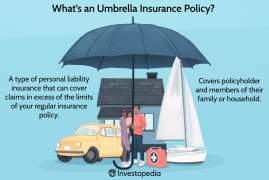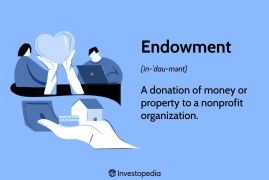Homeowners insurance typically covers damages from theft, fire, and certain natural disasters but not regular wear and tear or earthquakes. Understanding what your policy includes and excludes can help you make informed decisions when purchasing and using homeowners insurance.
This essential coverage protects your investment by providing financial security in the event of unforeseen events. It’s crucial to be aware of the specific protections and limitations of your policy to ensure you are adequately covered. By knowing both what is covered and what is not covered, homeowners can safeguard their properties and belongings effectively.
Take the time to review your policy details carefully and consider any additional coverage options that may be necessary for your individual circumstances.
Covered By Homeowners Insurance
Homeowners insurance covers damages to your property caused by perils like fire and theft, as well as liability if someone gets injured on your property. However, it typically doesn’t cover damages related to flood and earthquake.
Dwelling And Structures
Homeowners insurance covers the structure of your house, including the walls and roof.
Personal Belongings
Your policy can cover the cost of replacing personal items such as furniture, clothing, and electronics.
Liability
Homeowners insurance can protect you if someone gets injured on your property and you are found liable.
Additional Living Expenses
If your house becomes uninhabitable due to a covered event, your insurance may pay for temporary living expenses.
Not Covered By Homeowners Insurance
Not Covered by Homeowners Insurance:
Flooding
Homeowners insurance typically does not cover damage caused by flooding.
Earthquakes
Earthquakes are generally not covered under standard homeowners insurance policies.
Maintenance And Wear And Tear
Costs related to maintenance and wear and tear of your home are not covered by homeowners insurance.
Certain High-value Items
Some high-value items may not be fully covered by standard homeowners insurance.
Optional Coverages To Consider
While homeowners insurance typically provides coverage for various events and hazards, there are specific risks that may not be included in a standard policy. These optional coverages can be crucial for homeowners who want to protect themselves against specific perils. Here are three optional coverages worth considering:
Flood Insurance
Floods can cause significant damage to a home and its contents, yet they are often excluded from standard homeowners insurance policies. To safeguard your property against flooding, it is advisable to consider purchasing a separate flood insurance policy. This coverage can help you recover from the financial consequences of water damage caused by natural disasters or other related events.
Earthquake Insurance
Earthquakes can cause devastating damage to a home, and this risk is typically excluded from standard homeowners insurance policies. If you live in an area prone to seismic activity, earthquake insurance can provide the necessary protection. By obtaining this coverage, you can receive compensation for property damage or loss resulting from an earthquake.
Scheduled Personal Property Endorsement
While homeowners insurance policies generally offer coverage for personal belongings, there are limits on the amount of coverage for high-value items such as jewelry, artwork, or collectibles. To ensure that these items are adequately protected, you may want to consider adding a scheduled personal property endorsement to your policy. This endorsement provides additional coverage for specific, valuable items and can help reimburse you for their full value in the event of loss, theft, or damage.
By considering these optional coverages, homeowners can tailor their insurance policies to meet their individual needs and gain peace of mind knowing they are fully protected against a wider range of risks.
Factors Affecting Homeowners Insurance Coverage
When considering homeowners insurance coverage, several factors come into play that determine what is and isn’t covered by your policy. Understanding these factors can help you make informed decisions when purchasing insurance and ensure that you have adequate coverage for your home. Let’s explore some key factors affecting homeowners insurance coverage:
Location
Your home’s location plays a significant role in determining your homeowners insurance coverage. Insurers consider factors such as the likelihood of natural disasters, crime rates, and proximity to fire stations when assessing the risk associated with your location. Homes in high-risk areas, such as coastal regions prone to hurricanes or wildfire-prone areas, may require additional coverage and incur higher premiums.
Construction Type
The construction type of your home can impact your insurance coverage. Homes built with fire-resistant materials or those constructed to withstand severe weather may be eligible for discounts on insurance premiums. Conversely, older homes or those built with materials that are prone to damage, such as wood, may require higher coverage due to the increased risk associated with these construction types.
Home Security Measures
The levels of security and safety measures in your home also influence homeowners insurance coverage. Features like burglar alarms, smoke detectors, and deadbolt locks can reduce the risk of theft and property damage, potentially leading to lower insurance premiums. Implementing security measures and providing documentation to your insurer can demonstrate your commitment to mitigating risks, affecting your coverage positively.
Claims History
Your claims history is another influential factor in determining homeowners insurance coverage. A history of frequent or significant claims can result in higher premiums or even difficulty in securing coverage, as it may signal a higher risk associated with your property. Conversely, a clean claims history can positively impact your insurance coverage, potentially leading to lower premiums and more favorable coverage terms.
Tips For Choosing The Right Homeowners Insurance
When it comes to protecting your most valuable asset, choosing the right homeowners insurance is crucial. Understanding what your policy covers and doesn’t cover is essential for making an informed decision. In this post, we’ll provide tips for selecting the right homeowners insurance and explore what is typically covered and not covered by these insurance policies.
Evaluate Your Coverage Needs
Compare Multiple Insurance Providers
Consider Customer Service And Reviews
Review Policy Exclusions And Limitations
Frequently Asked Questions On What Does Homeowners Insurance Cover And Not Cover
What Does Homeowners Insurance Cover?
Homeowners insurance typically covers damage to your home and personal belongings caused by perils such as fire, theft, and vandalism. It also provides liability protection if someone is injured on your property.
Does Homeowners Insurance Cover Water Damage?
Homeowners insurance may cover water damage caused by sudden and accidental events, such as burst pipes or a roof leak. However, it usually doesn’t cover damage from gradual issues like lack of maintenance.
Will Homeowners Insurance Cover My Personal Belongings?
Yes, homeowners insurance generally covers your personal belongings, such as furniture, clothing, and electronics, if they are damaged or stolen due to covered perils. You may need additional coverage for high-value items like jewelry or fine art.
Does Homeowners Insurance Cover Natural Disasters?
Homeowners insurance typically doesn’t cover damage from natural disasters like earthquakes and floods. You may need to purchase separate policies or add endorsements to your homeowners insurance for these perils.
Conclusion
Homeowners insurance offers protection for your property and belongings from various risks, such as fire, theft, and damage caused by natural disasters. It also provides liability coverage for accidents that may occur on your property. However, it’s essential to understand that homeowners insurance does not cover everything, such as earthquakes, floods, and certain types of personal belongings.
To ensure you have adequate coverage, it’s crucial to review your policy and consider additional coverage options if needed. Protecting your home and valuables with the right insurance is vital for peace of mind and financial security.


Leave a comment